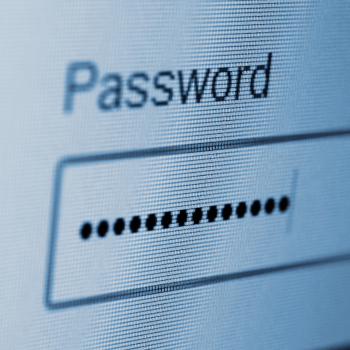Password managers and why we should use them
 We access our e-mail, social networks, and banking applications as a routine part of daily life. But, do you know what all these services have in common? They’re protected by passwords that we need to choose and keep. But remembering all the sequences of characters we use is no easy task.
We access our e-mail, social networks, and banking applications as a routine part of daily life. But, do you know what all these services have in common? They’re protected by passwords that we need to choose and keep. But remembering all the sequences of characters we use is no easy task.
To simplify things, some people repeat the same password for several accounts, while others write it down in a notebook or file on their cell phone or rely on browsers to save and automatically fill in data.
None of these options are much good, though, as a criminal could discover the password you use repeatedly and gain access to all your accounts.
Someone with malicious intent could also take advantage of passwords written down on a piece of paper to leak confidential company data.
As such, the safest bet is a password manager!
What are password managers?
In simple terms, password managers are tools designed to securely store, generate, and manage all your passwords.
Imagine an encrypted digital vault where you store all your login information, for everything from email accounts and social networks to that used for banking and online shopping.
What are the advantages and features of password managers?
-
Easy access to your credentials: with a password manager, you don't have to worry about memorizing each password. All you have to do is remember a single password - the vault's master password - to access all your credentials.
-
Generating strong passwords: many password managers can automatically generate complex and unique passwords for each account, further increasing the level of security of these combinations.
-
Security auditing: some password managers offer security auditing features, alerting you to weak, reused, or compromised passwords.
How do I choose a password manager?
When choosing a password manager, consider the following:
-
Security: check that the password manager uses robust encryption to protect your passwords. Most password managers use AES-256 encryption, considered secure against attacks.
-
Compatibility: the manager must be compatible with all the devices and operating systems you use.
-
Features: some password managers offer additional features, like secure password sharing with internal company users, two-factor authentication, and data breach alerts.
-
Price: consider your needs and budget when choosing a password manager. Some managers are free, while others require a subscription.
Best Practices for Using a Password Manager Successfully
The way you use the manager will also determine whether you increase or decrease your security. Here are some best practices to get the most out of the software:
-
Use a strong master password: this is the ‘key’ to access all your passwords, so make sure it is unique, long, and complex.
-
Activate two-factor authentication: whenever possible, activate two-factor authentication.
-
Only store passwords in your manager: avoid storing passwords in other places, like browsers, notebooks, or other devices, so that no one else has access to your credentials.
Password managers are essential for keeping your online accounts safe. By understanding what they are and how to use them, you can greatly improve your online security!
